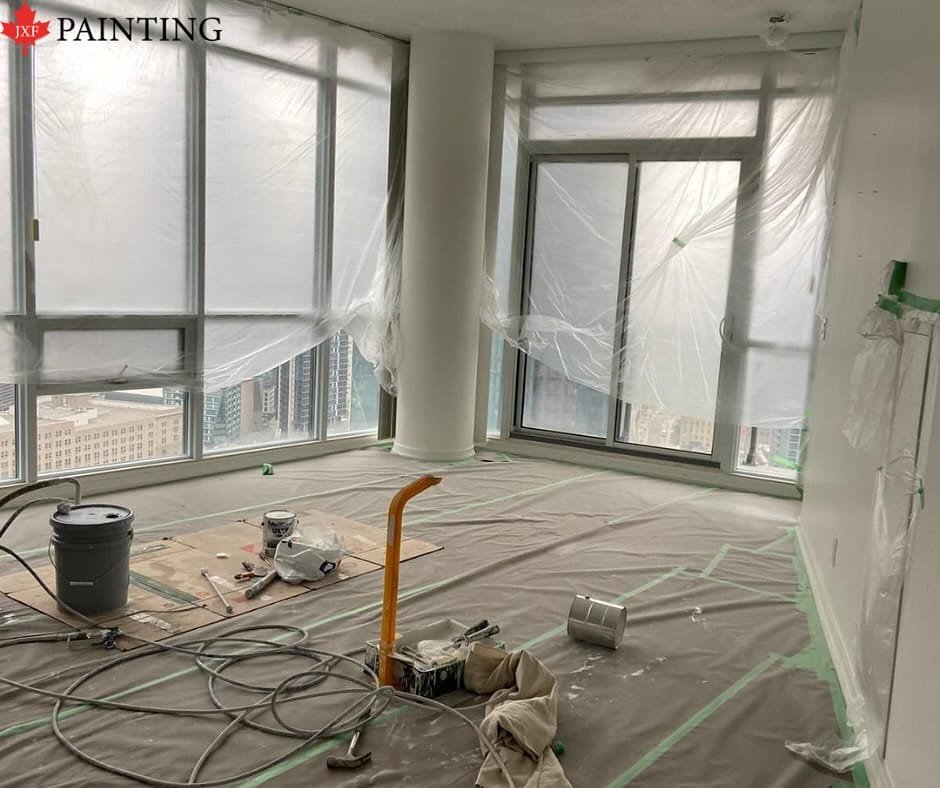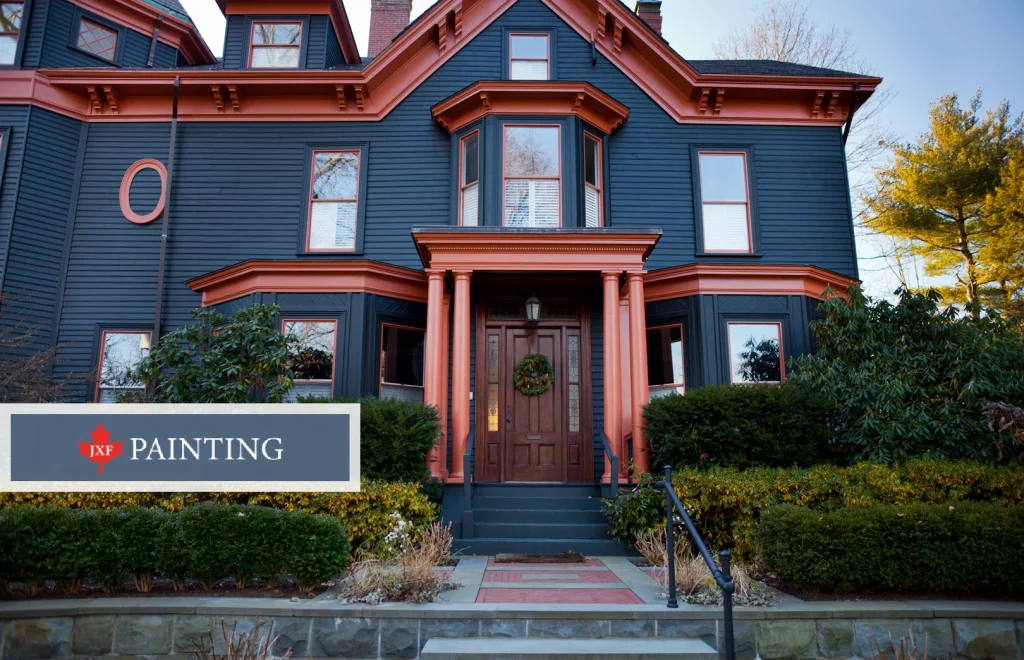Whether it’s a business office or a warehouse, the outside of your building is the first impression. This is what partners, clients, and customers will notice. In this case, people can easily judge “a book by its cover,” which refers to the look and neatness of your property.
Warehouse painting and office painting services are both covered by your local professional painting service companies. Start your research by Google searching “painting service near me” and checking reviews, blogs, social media, service locations, etc.
Ignoring this part of building care can lead to many problems. A well-maintained paint job can boost curb appeal and protect your property from the weather. Knowing when your commercial property needs a new coat of paint is crucial for property managers and business owners.
A great paint job not only improves appearance but also protects your building. It can even boost worker morale and productivity. By watching the condition of your property’s paint, you can avoid costly repairs later. This helps your company look its best.
In the next sections, we will discuss the main signs that you need a new paint job. We will also look at the factors that affect how often you should paint. Finally, we will give useful tips on choosing the best colours and finishes for your business space.
This guide will provide the information you need to make smart choices about taking care of your property. This applies whether you manage an office building, a store, or an industrial site.
Recognizing the Signs: Signs Your Commercial Property Needs A Fresh Coat of Paint
Determining whether to repaint your business property is not always simple. You may, however, use several signs to tell whether it’s time to get a new coat. By watching for these signs, you can maintain the beauty and safety of your building. This way, everyone who enters will have a good impression.
One of the most obvious signs that your commercial building needs repainting is the presence of visible wear and tear. This can manifest in various ways:
- Scuff marks and scratches are common in busy areas. They can build up over time and lower your building’s appeal.
- Dents and dings: Unwanted marks from foot traffic, furniture, or equipment can make your walls look bad. These marks can take away from the nice look of your room.
- Colour fading: Sunlight can make paint colours fade unevenly. This often happens in rooms with large windows or skylights. The result can look patchy or washed out. Using high quality paint is crucial to see a great difference in how it lasts over time.
- Chalking: The paint starts crumbling and leaves a powdery residue on the surface. Outdoor paint projects that experience severe weather especially show this prevalence.
By addressing these issues promptly with a fresh paint job, you can restore your building’s appearance and protect it from further damage.
Peeling or Chipping Paint
More severe signs of paint deterioration include peeling, bubbling, or cracking. These issues not only look unsightly but can also indicate underlying problems:
- Peeling paint occurs when the paint does not stick well to the surface below. This usually happens because moisture gets in or there is poor preparation before painting.
- Chipping or cracking: Paint can become weak as it ages and may start chipping or flaking off. This can damage the surface below. It happens when the paint sticks less to the surface. This usually occurs because of moisture getting in or poor preparation from a previous paint job.
Old Colour Scheme
A colour scheme can greatly affect your company’s image and how people see your brand, even if there are no structural issues. Think about repainting if
- The colours you now use don’t match industry trends or your brand identity.
- The current paint job seems outdated or uninspired.
- You want to give customers and staff a more contemporary, friendly environment.
- Changing your colour scheme can bring new energy to your commercial space. This can improve morale and productivity. It also helps make a better impression on visitors.
Factors Affecting the Frequency of Painting Your Home
A number of variables determine how frequently you should repaint your business building. You can better plan and budget for routine maintenance if you are aware of these:
Environmental Conditions
The climate and environmental factors in your area play a significant role in determining how often you should repaint:
- Sunlight exposure: Buildings in areas with intense sunlight may require more frequent repainting because of UV damage and fading.
- Humidity levels: High humidity can accelerate paint deterioration, especially in coastal regions where salt air is a factor.
- Temperature fluctuations: Extreme temperature changes can cause paint to expand and contract, leading to cracking and peeling.
- Pollution: Cities with high air pollution may experience faster paint wear. This happens because chemicals in the air react with the paint.
Think about these factors when planning your painting schedule. Talk to a local painting company that knows the challenges in your area.
Building Usage and Foot Traffic
The way your building is used can significantly impact how quickly paint wears:
- High-traffic areas are places that many people use often. These include corridors and lobby areas. They may need touch-ups or repainting more often.
- In industrial settings, buildings may need special coatings and more regular maintenance. This is important for places with chemicals, large machines, or frequent cleaning.
- Retail spaces: To maintain a fresh look, busy areas or regular product displays may need more frequent updates.
- Office spaces can benefit from occasional repainting. This keeps a professional look, even if they don’t wear out quickly.
The Painting Process: What to Expect From Professional Painters
Understanding the commercial painting process can help you prepare for the project and ensure a smooth experience:
Initial Consultation and Assessment
A reputable painting contractor will begin with a thorough assessment of your property:
- Inspect the current condition of your walls and surfaces.
- Identify any areas requiring repair or special treatment.
- Discuss your goals, preferences, and any specific concerns.
- Provide a detailed estimate and project timeline.
Surface Preparation
Proper prep work is crucial for a long-lasting paint job:
- Cleaning surfaces to remove dirt, dust, and grease.
- Repairing any damaged areas, such as cracks or holes.
- Sanding rough spots and removing loose paint.
- Applying primer where necessary to ensure proper paint adhesion.
Paint Application
The actual painting process involves several steps:
- Protecting non-painted surfaces with drop cloths and masking tape.
- Applying paint using appropriate techniques (e.g., brushing, rolling, or spraying).
- Allowing sufficient drying time between coats.
- Applying multiple coats as needed for even coverage and durability. The type of paint is also critical.
Final Inspection and Clean-up
Once the painting is complete, the contractor should:
- Conduct a thorough inspection to ensure quality and consistency.
- Touch up any areas as needed.
- Remove all protective coverings and clean up the work area.
- Provide you with care instructions for your new paint job.
Understanding this process allows you to communicate better with your contractor and ensures that you meet all your expectations.
Maintaining Your New Paint Job: Interior Painting & Exterior Painting
After getting a fresh paint job, good maintenance can help it last longer. This keeps your commercial building looking great.
Regular Cleaning
Establish a routine cleaning schedule to prevent dirt and grime buildup:
- Use gentle, non-abrasive cleaners appropriate for your paint type.
- Pay special attention to high-traffic areas and frequently touched surfaces.
- Address spills and stains promptly to prevent permanent damage.
Touch-ups and Repairs
Address minor issues quickly to prevent them from becoming larger problems:
- Keep extra paint on hand for small touch-ups.
- Repair any damage to the underlying surface promptly.
- Consider scheduling annual inspections to catch and address issues early.
Environmental Controls
Minimize environmental factors that can degrade paint:
- Control humidity levels to prevent moisture-related issues.
- Use window treatments to reduce direct sunlight exposure on interior walls.
- Ensure proper ventilation to prevent mold and mildew growth.
By following these maintenance tips, you can greatly extend the life of your paint job. This will help keep your building looking good for years.
Contact Us Today!
Call: (647) 889-5125
Email: info@jxfpaitningservice.ca
Website: www.jxfpaintingservice.ca





One Response
“What a gem I’ve discovered! The thoroughness of your research combined with your engaging writing style makes this post exceptional. You’ve earned a new regular reader!”